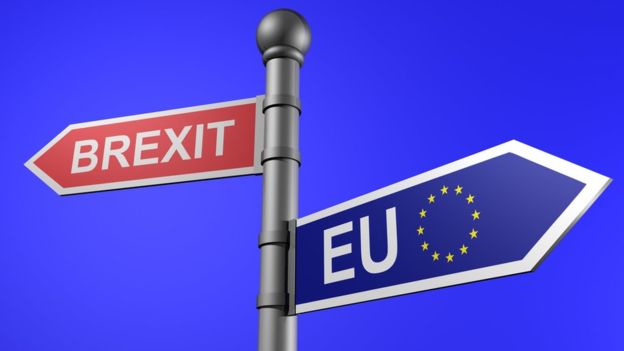Unless you’ve made a conscious effort to avoid it, you’ll have been hearing a lot about Brexit just recently (actually even if you are trying to avoid you’ve probably still heard a fair amount). It’s safe to say that leaving the European Union is one of the biggest things to happen to this country since…well since we joined the European Union.
You’ve probably got an opinion on it, your friends definitely have an opinion on it, everyone on social media most certainly has an opinion on it, but whether you’re for or against Brexit, the fact is that a lot of things are about to change, so what does that mean for you and your business?
Suppliers
If your company, or your supplier’s company is internationally based, you’ll need to consider the following:
VAT
Currently, due to free trade between member states, most parcels in and out of member states aren’t subject to VAT. That means that suppliers may now find themselves faced with the burden of a VAT bill they never had before, and it would stand to reason that this expense will be filtered down through the supply chain. VAT will now be charged at the border when importing goods and services. In short, you need to be prepared for the possibility that hardware prices may go up, if your suppliers source them from the EU. In the event of a no-deal Brexit, this change may be immediate, but the likelihood is there will be a transition period.
Border Procedures
You may also find that, as with every change to business practices, there will be some teething pains when it comes to operating new border procedures. When Australia introduced a new customs procedure in 2005, it seized up within two days, leaving the nation short of supplies. The port of Dover has the potential to be a bottleneck, so the safe and timely delivery of your IT equipment is dependent upon your suppliers having a contingency plan in place. Many suppliers are probably over-ordering stock to avoid these potential issues, but this means extra warehouse space, in turn meaning extra charges which may be passed onto you.
Delays in delivery
More complex port procedures could mean businesses need to be prepared to carry out more inventory, tying up additional working capital. In the event of no deal, HMRC have pledged to reintroduce postponed accounting for duty and VAT. That will mean that VAT and duties due on imports from ‘third countries’ (which will include the European customs union if no deal is reached) can be settled on an entity’s VAT return instead of immediately at port.
Product Compliance
Most products are subject to technical standards or regulations and have to comply with assessment and/or certification requirements. The UK standard at present is governed by the EU. It is thought that UK standards and regulations will be aligned with the EU at the point of exit, although this can be subject to change. Whilst this will probably only affect products leaving the UK into the EU, should the UK decide to drastically change their technical standards, this would mean a re-assessment of goods upon entering the UK. Again, this would cost money, which is filtered down through the supply chain.
Staff
Right to work in the UK
If you employ staff, you will need to be aware that EU Nationals will no longer have an automatic right to work in the UK. You’ll need to consider this when interviewing new employees, although how this will affect your current employees remains to be seen.
Qualifications
UK professional qualifications will not be recognised by the EU so this may also be the case for those with EU qualifications working here. You will need to keep this in mind with any new employees and do the relevant qualification checks to see how they transfer. You may also need to check your insurance policies in case these are impacted by the nature of your employee’s professional qualifications.
Workplace rights
Workplace rights and protections come from EU law; meaning working time regulations, leave entitlements, health and safety requirements and more. There have been rumours circulating that state (incorrectly) that the exit from the EU will mean that employers legally no longer have to abide by these regulations. In fact, the EU (Withdrawal) Act 2018 brings across powers from EU Directives, so all employment rights will remain unchanged. We might see new ‘laws’ come into place, but these will not consist of anything new, these will just be the old EU laws being entrenched into UK law.
In summation
Whatever happens, the country will get back on track eventually, but the ‘transition period’ is going to be interesting to say the least! As a business owner, you’ll need to put every effort into ensuring that your employees and clients are protected from the inevitable domino effect that follows any major change to trade laws. Businesses that deal directly with EU states could see a big impact on their cash flow in the initial period, and delays in supply are likely.
The good news however, is that we’re all in the same boat. Keep a close eye on your supply chain and make sure that you’re fully versed in whatever new legislation is approved and it should be business as usual – deal or no deal!


